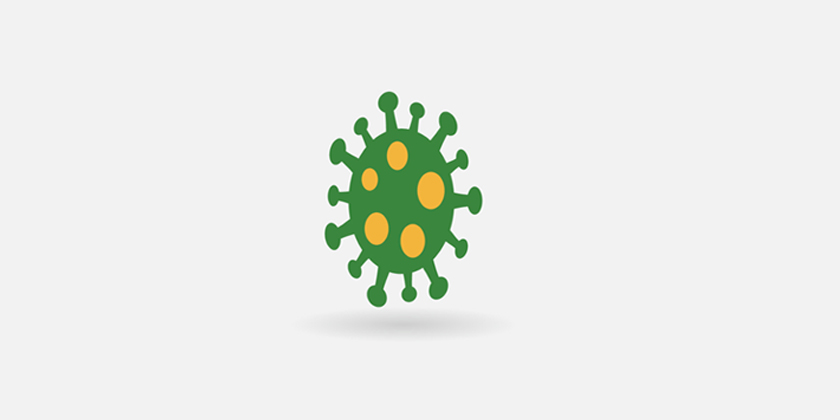Updated 11/29/21:
Dear Patients,
As of Nov. 2, 2021, the Pfizer-BioNTech vaccine, now known as Comirnaty, has received EUA from the FDA and has been authorized by the CDC for use in children who are 5 to 11 years old. The CDC is now actively recommending that all children between the ages of 5 and 11 years receive the two-dose primary series of the Pfizer-BioNTech pediatric COVID-19 Vaccine to reduce risk of severe illness or death. TPCA has received our first round of doses and immediately has begun vaccinating its pediatric patients and educating parents. Due to the different dose, we will hold separate clinics for this age group. You may contact your physician’s office to schedule an appointment and get more information about COVID-19 vaccines for your children. A parent or guardian must accompany a child to their vaccination appointment.
Additionally, we understand many of you are interested in obtaining a booster dose of your COVID-19 Vaccine. Booster doses are now recommended for everyone over the age of 18 who are fully vaccinated and after six months since receiving the second dose. We ask you reach out to your provider to see if you meet the criteria set forth by the CDC to receive a booster dose. To schedule your first dose, call Clinical Services or your provider’s office.
We will continue to update this webpage as we get more information. Please be assured we care about getting you and your family the vaccine as quickly and as safely as we can.
Thank you,
Tallahassee Primary Care Associates
For more information and past updates, visit: www.tallahasseeprimarycare.com/category/news/.
FAQS
How can I get my COVID-19 vaccine?
With the Moderna, Pfizer and Johnson & Johnson vaccines, widespread vaccination is available. Everyone ages 12+ can now get their vaccine. The Pfizer vaccine is authorized for emergency use by the FDA in those 12 and older, while Moderna and Johnson & Johnson are authorized for those 18 and older. The FDA has given the Pfizer vaccine full approval for individuals 16 years of age and older. With the recent rise in cases of the Delta variant, we must all continue taking important precautions to help slow the spread of the virus. This may include wearing a mask, washing and sanitizing your hands frequently, social distancing and limiting gatherings.
Can kids get the COVID-19 vaccines?
Kids 12 and older can get the vaccine in the U.S. The Food and Drug Administration (FDA) has given the Pfizer-BioNTech COVID-19 vaccine authorization for emergency use for children ages 12 through 15. The FDA first gave this vaccine emergency use authorization for people age 16 and older in late 2020. As of August 23, 2021, the FDA has given full approval of the Pfizer-BioNTech vaccine for individuals 16 years of age and older.
The Pfizer-BioNTech COVID-19 vaccine requires two injections given 21 days apart. The second dose can be given up to six weeks after the first dose, if needed.
Research has shown that the Pfizer-BioNTech COVID-19 vaccine is 100% effective in preventing the COVID-19 virus in children ages 12 through 15. Previous research has shown that the vaccine is 95% effective in preventing the COVID-19 virus with symptoms in people age 16 and older. Early research also suggests that the vaccine is 96% effective at preventing severe disease with the COVID-19 virus caused by the delta variant, the most common COVID-19 variant in the U.S right now.
Can I contract COVID-19 from the vaccine?
No. The vaccine does not contain the live virus that would cause COVID-19. Instead, it is aimed to help you develop antibodies to help fight off the virus. After receiving the vaccine, you may not feel well for a few days as the vaccination will trigger an immune response.
How does the vaccine affect people that have already had COVID-19?
Based on results from the COVID-19 vaccine trails, there is no known difference in side effects experienced by individuals who have previously recovered from the virus and those who have never had it.
If I receive the vaccine, does that mean I can’t catch COVID-19?
These COVID-19 vaccines, as with all vaccines, are not 100% effective, but are an important part of managing the pandemic and helping stop the spread. TPCA is still requiring all patients and employees wear masks, social distance and use proper hand hygiene in all of our facilities.
What vaccine is TPCA administering?
TPCA is receiving the vaccines from Pfizer and Moderna.
How many doses of a COVID-19 vaccine will I need and what is the time period between the initial vaccine and the 2nd vaccine dose?
With both Pfizer and Moderna vaccines, you will need 2 immunizations. For the Pfizer vaccine, these will be 3 weeks apart. For the Moderna vaccine they will be 4 weeks apart. A third dose is available starting August 14th for severely immunocompromised patients. A booster shot will be available after September 20th to be administered at least 8 months past your second COVID-19 vaccine.
What if I miss my second dose of the vaccine?
The first dose of the vaccine will build up some immunity but not as much as the two vaccines. The second dose will give a higher immunity that will last longer. We strongly recommend getting both doses.
Is the vaccine safe?
All the COVID-19 vaccines being used have gone through rigorous studies to ensure they are as safe as possible. The FDA has granted Emergency Use Authorizations for COVID-19 vaccines that have been shown to meet rigorous safety criteria and be effective determined by large, high-profile clinical trials. At this point, billions of COVID vaccines have been administered worldwide, and a growing body of data confirms their safety.
What are benefits of getting the COVID-19 vaccine?
Below is a summary of the benefits of COVID-19 vaccination based on what we currently know.
COVID-19 vaccination will help keep you from getting COVID-19
- All COVID-19 vaccines currently available in the United States have been shown to be highly effective against COVID-19.
- All COVID-19 vaccines that are in development are being carefully evaluated in clinical trials and will be authorized or approved only if they make it substantially less likely you’ll get COVID-19.
- Based on what we know about vaccines for other diseases and early data from clinical trials, experts believe that getting a COVID-19 vaccine may also help keep you from getting seriously ill even if you do get COVID-19.
- Getting vaccinated yourself may also protect people around you, particularly people at increased risk for severe illness from COVID-19.
- Experts continue to conduct more studies about the effect of COVID-19 vaccination on severity of illness from COVID-19, as well as its ability to keep people from spreading the virus that causes COVID-19.
What are the side effects of the COVID-19 vaccine?
The most common side effects are a sore arm, body aches, fever, fatigue. These side effects usually only last a day or two. The side effects are usually more prominent after the second vaccine because the body’s immune system is more primed to respond after the first dose. These side effects are not an illness though – they are simply the body responding to what it perceives as an illness. They are a good sign that your body is responding appropriately.
Is there a risk of a severe allergic reaction if I receive the vaccine?
As with any medication or vaccine, there is always the possibility of a severe allergic reaction. However the number of people who have a severe allergic reaction is very low. If you have had allergic reactions to vaccines in the past, or if you have had life threatening reactions to medications in the past, make sure you let the person who is administering the vaccine know. Extra observation will be used for those who have a history of severe allergic reactions.
Can I stop wearing a mask after I am vaccinated?
There is not enough information currently available to say when the CDC will stop recommending people wear masks and avoid close contact with others to help prevent the spread of the virus that causes COVID-19. Experts need to understand more about the protection the COVID-19 vaccines provide before making that decision. Other factors, including how many people get vaccinated and how the virus is spreading in communities, will also affect this decision.
Do I still need to get the vaccine if I have already tested positive and recovered from COVID-19?
Yes, it is recommended that unvaccinated people with COVID be vaccinated within 90 days of infection. After this time, natural immunity decreases. Studies have shown that getting vaccinated after infection decreases the risk of re-infection by about 50%. Vaccines can be given as soon as someone’s quarantine is complete.
Is the vaccine safe for women who are pregnant and breastfeeding?
The American College of Obstetrics and Gynecology recommends that all eligible persons, including pregnant and lactating individuals, receive a COVID-19 vaccine or vaccine series. There is no evidence of adverse maternal or fetal effects from vaccinating pregnant individuals with COVID-19 vaccine, and a growing body of data demonstrate the safety of such use. Pregnant women are at increased risk for severe COVID-19 symptoms, which makes vaccination especially important since COVID-19 can have serious health implications for both mother and fetus.
Does insurance cover COVID-19 vaccines?
All COVID vaccines are provided free of charge to the patient by the Federal Government.
How will the vaccine affect people with preexisting conditions like diabetes, kidney disease and heart conditions?
There is currently no data that suggests having an underlying health condition is a reason to avoid getting the vaccine. In fact, those with an underlying illness or health condition are at an increased risk for developing severe side effects or hospitalization due to COVID. Please speak to your primary care physician to address individual concerns.
Will I have to get a COVID-19 shot yearly?
Scientists and experts are still studying this and will respond as more data becomes available.
Can I still contract COVID-19 after I receive both doses?
You are considered fully vaccinated two weeks after a second dose of Pfizer or Moderna or after one dose of Johnson and Johnson. While the vaccine is not 100% effective at preventing COVID in adults, it greatly reduces the risk of contracting this virus and is even more effective at preventing severe illness/hospitalization from COVID-19.
Stay Informed:
For up to date information on COVID-19 vaccines, please access the helpful links below.
- Florida Department of Health, Leon County
- Florida Department of Health
- Capital Regional Medical Center
- Tallahassee Memorial Healthcare
- Center for Disease Control
- World Health Organization
- The New England Journal of Medicine
Additionally, Dr. Sam Ashoo, Emergency Medicine Physician here at TMH, answers 18 of the top questions regarding COVID-19 and the vaccines. Here’s what he has to say.







